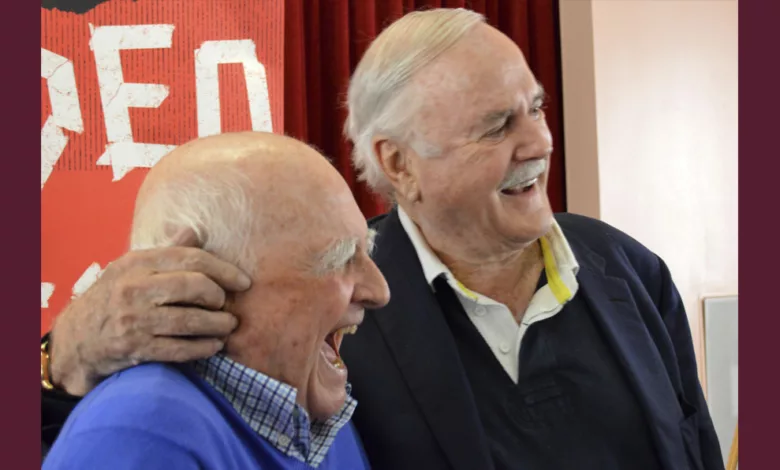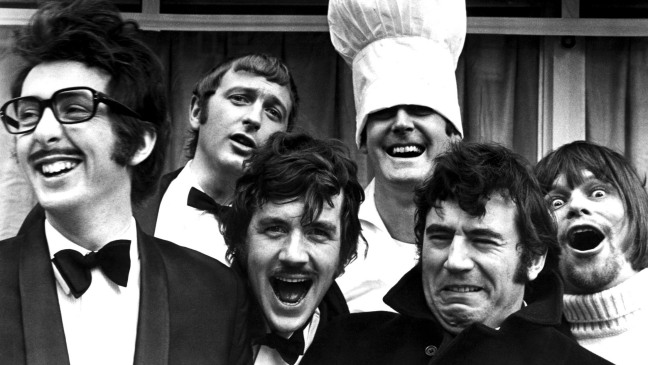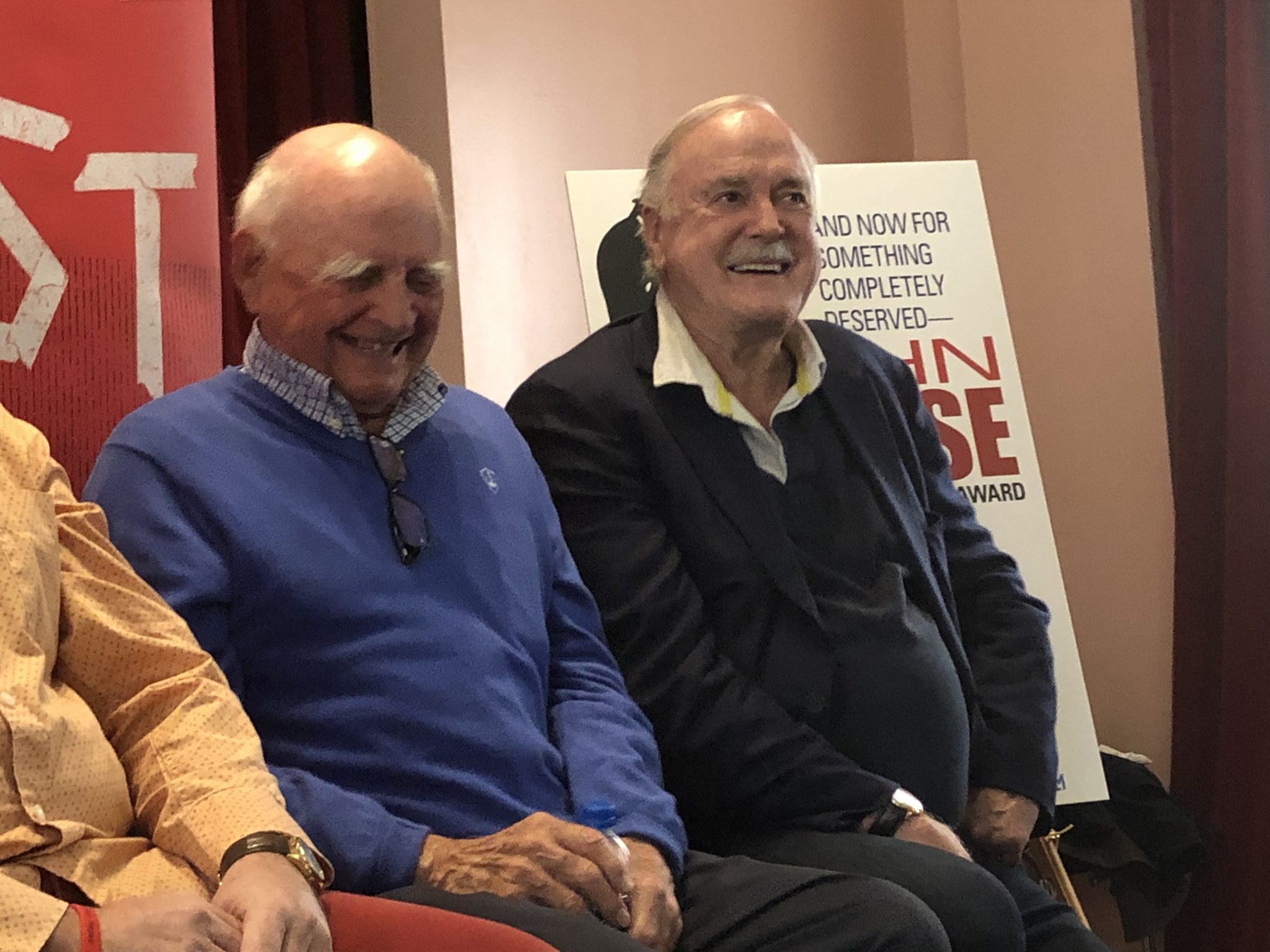Inside the Creative World of John Cleese and Ron Devillier

The Dallas Connection
When the 2019 Dallas Video Festival bestowed upon John Cleese its Ernie Kovacs Award, there was a Monty Python’s Flying Circus reunion, of sorts, during a private Q&A session held at MPS Studios.
Cleese was a founding member of the acclaimed British comedy troupe, yet the band of humorists may never have achieved lasting fame in the U.S. — or the world — had it not been for a Texan at KERA.
Cleese discussed Monty Python and the Flying Circus legacy with Ron Devillier, an SMU seminary grad and former Channel 13 reporter-turned-program manager in 1973. The friends got along as if the decades since their first meeting had melted away like a Crunchy Frog confection from the Whizzo Chocolate Company.
Devillier wondered aloud if Cleese might treat those assembled to a “silly walk” sight gag, to which Cleese responded “With all my artificial joints?”
“I bet I’ve got more,” Devillier said. “Go on,” Cleese answered. “I’ve got three.”
They also found mirth in comparing their birthdates: Cleese, on Oct. 27, 1930, and Devillier, on Feb. 3, 1936.
“Oh my God, he’s really old,” Cleese said. And then, shouting into Devillier’s ear: “Can you hear me all right?”
“Not really,” Devillier shouted, louder.
Devillier recalled how he first heard of Monty Python from a contact in New York who had previously provided other shows to KERA. “He said, ‘We’ve got a show here and we can’t sell it,’” Devillier said.
Stations in New York, Boston, San Francisco, Chicago, and more had passed on this strange, silly show from England. Devillier said he would be interested. Soon after, large broadcast cassettes arrived at his office on a Friday in February.
“I came in Saturday and I started watching the shows,” Devillier said. “I was in tears when I finished one show.” By the time he had finished watching his fill, he had spent the entire day at the station.
“So I became a fan instantaneously. I never have ceased to be so,” Devillier said. “The use of the language [and] who would have ever thought of doing a cheese shop — they got not a damn piece of cheese? You just didn’t know where it was going.”

Monty Python’s Flying Circus was such bizarre fare that station management could not tell if KERA had paid for a hit or not. Only when the first Neilson ratings came back was there some sense of Flying Circus’s place.
“The numbers were great. We usually had a one, one point two-five, maybe a two, two point five,” Devillier said.
“First night was a six. Then it went to a seven.”
Soon after, the audience ratings were a nine. “And that was the night we beat three of the networks,” Devillier said.
Cleese, who is also known for his roles in Monty Python films, the BBC series Fawlty Towers, and numerous other projects, spoke about some of the details regarding the notorious series. “When we started Python, people couldn’t make any sense of it,” Cleese began, when Devillier interrupted him. “That’s what made it so great,” Devillier said.
“I know,” Cleese said, laughing. “It was terribly funny and, even now, when I show clips… I watch the first two or three rows: some people are laughing hysterically, and then there are two just trying to understand it.”
Cleese continued: “And you can’t prove it’s funny. If you don’t think it’s funny then it’s not funny. It’s not funny to you.”

To underscore this point, Cleese spoke of the time the series was in its fourth year. An American had come to the U.K. to screen the show for station WGBH. “I always remember that one,” Cleese said, “because, in England, [that stands for] ‘With Grievous Bodily Harm.’”
After the screening, Cleese noted that the station represenative had become quite pale. “He could hardly speak,” Cleese said. “He just wanted to get out of there as fast as he could, so we all said we’ll never be on American television.” The eventual success of Monty Python’s Flying Circus in Dallas, decades ago, proved the cast wrong.
“Don’t forget, it all happened at a great distance,” Cleese said about the program finally making it to America.
“People always think in this business that you know what’s going on and the answer is, they don’t tell you.”
He simply understood that something “extraordinary” was beginning to happen overseas in the 1970s.
“And we were so startled that it was Dallas,” he said. “Because you know, in England, in the old days, we thought people in Dallas ate their own children.”





